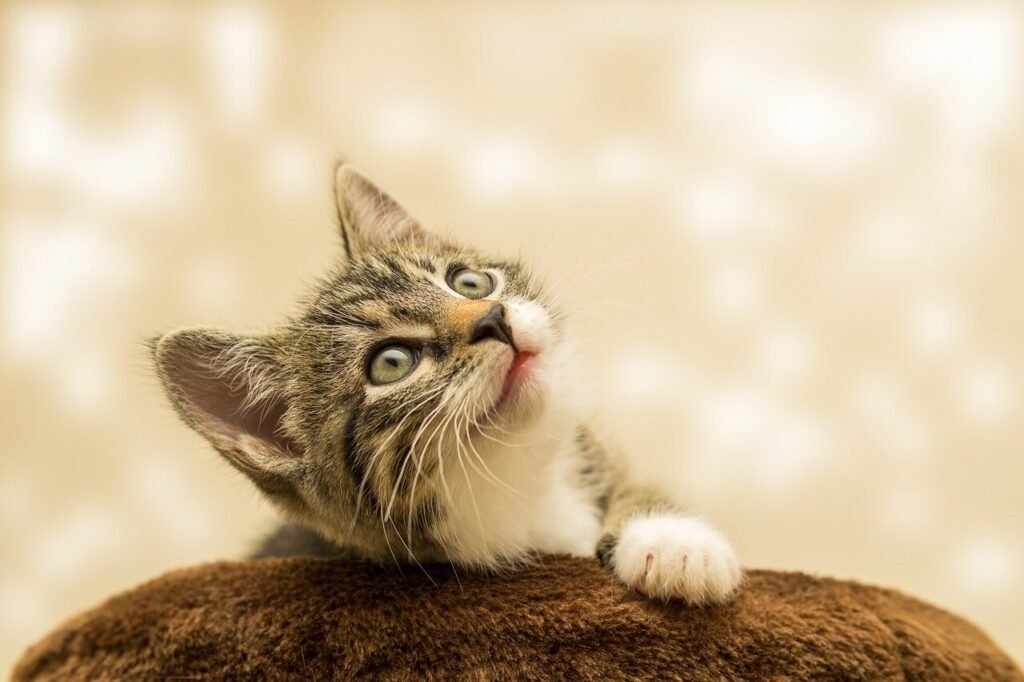Why Is My Cat Sneezing Blood? Understanding the Causes and What to Do
Few things are as alarming for a cat owner as noticing blood in their feline friend’s sneeze. While occasional sneezing is common among cats, sneezing blood is a serious symptom that requires immediate attention. This unsettling behavior could indicate anything from minor irritation to a more severe underlying condition. In this article, we’ll explore the potential causes of bloody sneezing, how to identify warning signs, and what steps you should take to ensure your cat gets the care they need. By understanding why your cat might be sneezing blood, you can act quickly and responsibly to protect their health.
What Could Be Behind Your Cat’s Bloody Sneezes?
Sneezing blood in cats is often a sign of an underlying issue affecting their respiratory system or nasal passages. Identifying the root cause is essential for proper treatment. Here are some common reasons why your cat might be sneezing blood:
Nasal Infections :
Bacterial or fungal infections can irritate the nasal lining, leading to bleeding.Foreign Objects :
Small objects like grass seeds or dust trapped in the nasal cavity may cause irritation and bleeding.Trauma or Injury :
Accidents or rough play can damage the delicate tissues inside the nose.Dental Issues :
Severe dental disease can spread infection to the nasal sinuses, causing bleeding.Tumors or Growths :
Nasal tumors, though rare, can erode tissues and result in bloody discharge.
If your cat is sneezing blood, it’s crucial to consult a veterinarian promptly. Early diagnosis and treatment can prevent complications and ensure your cat’s well-being.
Recognizing Other Signs That Accompany Bloody Sneezing
Bloody sneezing is rarely an isolated symptom. Cats often exhibit additional signs that can provide clues about the underlying issue. Being aware of these symptoms can help you communicate effectively with your vet. Here’s what to look for:
Nasal Discharge :
Clear, yellow, or green discharge may accompany sneezing and indicate infection.Facial Swelling :
Swelling around the nose or eyes can suggest trauma or infection.Difficulty Breathing :
Labored breathing may point to blockages or severe respiratory issues.Lethargy or Weakness :
A lack of energy could signal systemic illness or pain.Loss of Appetite :
Dental problems or discomfort may lead to reduced eating habits.
These symptoms, combined with sneezing blood, paint a clearer picture of your cat’s condition. Documenting these signs will assist your vet in making an accurate diagnosis.
Check this guide 👉What Can I Give My Cat for Sneezing? Best 7 Health Tips!
Check this guide 👉Why Is My Cat Sneezing and Have Watery Eyes? Best 7 Tips!
Check this guide 👉Understanding Cat Allergy Tests: Best 7 Health Tips!

Potential Causes of Sneezing Blood | Recommended Actions |
|---|---|
Nasal infections | Schedule a vet visit for antibiotics |
Foreign objects | Avoid self-removal; let a vet handle it |
Trauma or injury | Monitor for swelling and seek immediate care |
Dental issues | Address dental hygiene and schedule cleaning |
Tumors or growths | Request imaging tests like X-rays or CT scans |
How Vets Investigate the Cause of Bloody Sneezing
When you bring your cat to the vet for sneezing blood, they’ll follow a systematic approach to pinpoint the cause. Understanding this process can help you prepare for the visit and feel more informed. Here’s what typically happens during diagnosis:
Physical Examination :
The vet checks the cat’s nose, mouth, and throat for visible signs of trauma or infection.Blood Tests :
Blood work helps rule out systemic illnesses or infections.Imaging Studies :
X-rays or CT scans reveal abnormalities in the nasal passages or sinuses.Rhinoscopy :
A tiny camera examines the nasal cavity for foreign objects or growths.Biopsy :
If tumors are suspected, a tissue sample may be taken for analysis.
The diagnostic process ensures an accurate understanding of your cat’s condition. Trust your vet’s expertise to guide you through this critical step.
Addressing the Root Cause: How Sneezing Blood Is Managed
Once the cause of your cat’s sneezing blood has been identified, treatment will focus on resolving the underlying issue. Here are some common approaches vets may recommend based on the diagnosis:
Antibiotics for Infections :
Prescribed medications target bacterial or fungal infections causing nasal irritation.Removal of Foreign Objects :
Minor surgery or tools may be used to safely extract trapped debris.Pain Management for Trauma :
Anti-inflammatory drugs or pain relievers alleviate discomfort from injuries.Dental Procedures :
Extractions or cleanings address advanced dental diseases contributing to nasal issues.Cancer Treatments for Tumors :
Surgery, chemotherapy, or radiation therapy may be options depending on tumor type.
Each treatment plan is tailored to your cat’s specific needs. Follow your vet’s recommendations closely to ensure the best outcome.
Proactive Steps to Keep Your Cat’s Respiratory System Healthy
While not all causes of sneezing blood can be prevented, there are steps you can take to minimize risks and maintain your cat’s overall health. Prevention is always better than cure, especially when it comes to respiratory issues. Here are some practical tips to protect your cat:
Regular Vet Check-Ups :
Routine exams help catch potential problems early before they escalate.Maintain a Clean Environment :
Reduce dust, allergens, and irritants in your home to prevent nasal irritation.Monitor Dental Health :
Brush your cat’s teeth regularly or provide dental treats to prevent infections.Supervise Outdoor Time :
Limit exposure to hazards like sharp objects or fights with other animals.Avoid Smoking Around Your Cat :
Secondhand smoke can irritate their nasal passages and lungs.
By taking these preventive measures, you can significantly reduce the likelihood of your cat developing conditions that lead to sneezing blood. A little effort goes a long way in safeguarding their well-being.
Helping Your Feline Friend Feel Safe and Comfortable
Recovering from an illness or injury can be stressful for cats, especially when it involves their respiratory system. Providing emotional support during this time can aid in their healing process and strengthen your bond. Here’s how you can comfort your cat:
Create a Quiet Space :
Designate a calm, low-traffic area where your cat can rest undisturbed.Offer Gentle Affection :
Stroke or talk softly to your cat to reassure them and reduce anxiety.Stick to a Routine :
Maintain regular feeding and play schedules to provide stability.Provide Soft Bedding :
Ensure their sleeping area is cozy and supportive for maximum comfort.Limit Stressful Interactions :
Avoid loud noises, sudden movements, or interactions with overly energetic pets.
A peaceful recovery environment helps your cat heal faster and feel more secure. Your care and attention can make all the difference during this vulnerable time.
Recognizing Signs That Require Immediate Attention
While some cases of sneezing blood may not be urgent, others demand immediate veterinary care. Knowing when to act quickly can save your cat’s life. Here are red flags that indicate an emergency:
Heavy or Continuous Bleeding :
Profuse bleeding from the nose requires urgent medical intervention.Labored Breathing :
Struggling to breathe suggests a blockage or severe respiratory issue.Collapse or Weakness :
Sudden lethargy or inability to stand is a critical warning sign.Pale Gums or Rapid Heart Rate :
These symptoms may indicate internal bleeding or shock.Swelling or Deformity Around the Nose :
Visible trauma or abnormal swelling points to serious injury.
If you notice any of these signs, don’t delay—seek emergency veterinary care immediately. Acting fast can prevent further complications and ensure your cat receives the treatment they need.
Frequently Asked Questions About Cats Sneezing Blood
Can allergies cause my cat to sneeze blood?
Allergies typically don’t cause bleeding unless they lead to severe nasal irritation.
Is sneezing blood always a sign of something serious?
Not always, but it’s best to treat it as urgent and consult a vet immediately.
Can I use over-the-counter medications for my cat’s sneezing?
No, human medications can harm cats; only use vet-prescribed treatments.
How long does recovery take after treatment?
Recovery time depends on the cause but ranges from days to weeks with proper care.
Should I isolate my cat if they’re sneezing blood?
Isolation isn’t necessary unless contagious diseases are suspected.
Final Thoughts: Acting Swiftly for Your Cat’s Health
Sneezing blood is a distressing symptom that no cat owner wants to encounter, but it’s also a clear signal to take action. Whether caused by infections, foreign objects, or more serious conditions, timely veterinary intervention is key to ensuring your cat’s recovery. By staying vigilant, recognizing accompanying symptoms, and following professional advice, you can help your feline companion return to their happy, healthy self. Remember, your cat relies on you to advocate for their well-being—so trust your instincts and prioritize their care whenever something seems off.
Telomian Chow Chow Mix: Best 7 Expert Tips! – Discover the unique blend of loyalty, agility, and independence in this rare hybrid. Perfect for devoted dog lovers!
Telomian Akita Mix: Best 7 Expert Tips! – Discover the perfect blend of loyalty, strength, and agility in this unique hybrid. Learn care, training, and health tips!
Telomian Bernese Mountain Dog Mix: Best 7 Expert Tips! – Discover the perfect blend of agility, loyalty, and charm in this unique hybrid companion.
Telomian Bulldog Mix: Best 7 Expert Tips! – Discover the perfect blend of loyalty, energy, and charm with this unique hybrid breed. Ideal for active families!





